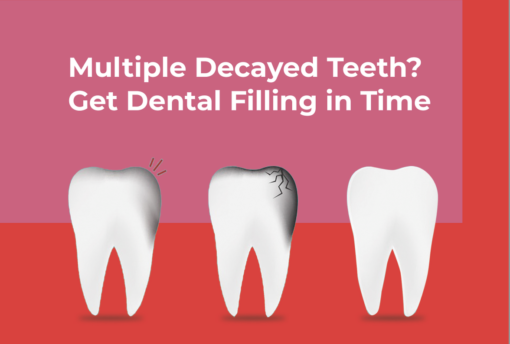Dental crowns can be used for a number of different reasons. Whether you’re looking to repair a cracked tooth or cover up a missing one, dental crowns can be an excellent choice. However, as with any type of cosmetic dental procedure, it is important to understand any risks involved with having them placed. One common concern that potential crown wearers have is if the procedure could make their teeth turn black. While this is not a typical side effect, it does occasionally occur in those who have darker-coloured natural teeth in order to accommodate the new ones. This article will explore the answer about right tooth crown for you. Keep reading to learn more.
What is the reason for dental crown turning black?
There are a few different reasons why your teeth may turn black after receiving a dental crown. The most common reason is that the dye used to colour your teeth during the fitting process has leached into the underlying tissue and has stained the tooth. This is especially common in those who have darker-coloured natural teeth as the crown will have to match the colour of their teeth.

Another reason for blackened teeth is that the material used for the crown has discoloured. This can happen if the crown is made of a composite material that contains a high percentage of ferric oxide (FeO). Which is a black pigment used in many dental restorations. The third reason is that bacteria has grown on the crown, which has turned its colour black.
How do dental crowns turn teeth black?
The blackening of teeth after receiving dental crowns is caused by a number of different factors. One factor is the colour of the dental crown. If you have teeth that are darker in colour than your natural teeth, you will likely notice that the new crown appears very dark in colour. If the colour of your teeth is lighter than the colour of the crown, however, you will likely not notice any discolouration. Another factor is the type of material used to create the dental crown.
Crowns made of porcelain are often used in the procedure. Darker-coloured porcelains are available, but they are not typically used, as they can make your teeth look darker. One of the main factors behind this blackening, however, is the colour of the teeth themselves.
Is there anything I can do to prevent it?
To a certain degree, you can prevent your teeth from turning black after receiving dental crowns. First, you can ask your dentist to use a lighter-coloured crown. This is not likely to work, as the colour of the crown is chosen based on the colour of your teeth.
You can, however, ask your dentist to use lighter-coloured porcelain. This will not prevent discolouration, but it will make it less noticeable. Another thing you can do to prevent your teeth from turning black after receiving dental crowns is to use toothpaste that contains fluoride. Not only will this help protect your teeth from decay, but it will also help prevent your teeth from looking discoloured.
Why are dental crowns black in colour?
The colour of the dental crown is often black. This is because dental crowns are made of materials such as porcelain, which are typically black in colour. There are a few different reasons for the colour of dental crowns. One reason is that the underlying tissue is much darker than the crown.

The crown, therefore, appears very dark against the darker tissue. Another reason is that the dentist has chosen to use a darker-coloured tooth crown. This may be because you have teeth that are much lighter in colour
Are there any other side effects?
The blackening of teeth after receiving dental crowns is usually not serious. In some cases, however, the area around the tooth may become infected. This can cause swelling and pain, and you may need antibiotics to treat it. The blackening of teeth after receiving dental crowns is typically not serious. In some cases, the area around the tooth may become infected due to the black discolouration of the tooth. This can cause swelling and pain, and you may need antibiotics to treat it.
The blackening of teeth after receiving tooth crowns is typically not serious. In some cases, the area around the tooth may become infected due to the black discolouration of the tooth. This can cause swelling and pain, and you may need antibiotics to treat it. The blackening of teeth after receiving dental crowns is typically not serious. In some cases, the area around the tooth may become infected due to the black discolouration of the tooth. This can cause swelling and pain, and you may need antibiotics to treat it.
Conclusion
The blackening of teeth after receiving tooth crowns is typically not serious. In some cases, the area around the tooth may become infected due to the black discolouration of the tooth. This can cause swelling and pain, and you may need antibiotics to treat it. Overall, the blackening of the teeth is typically not serious and can be treated with antibiotics if necessary. If you have darker teeth and are worried about discolouration, you can ask your dentist if there are any other available options that will not stain your teeth as much.






